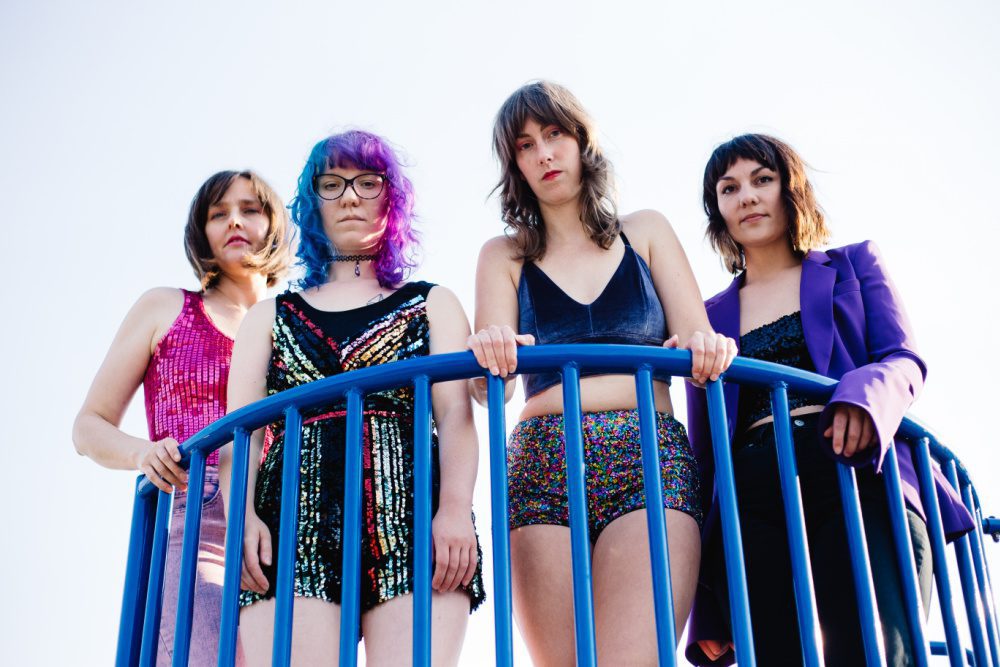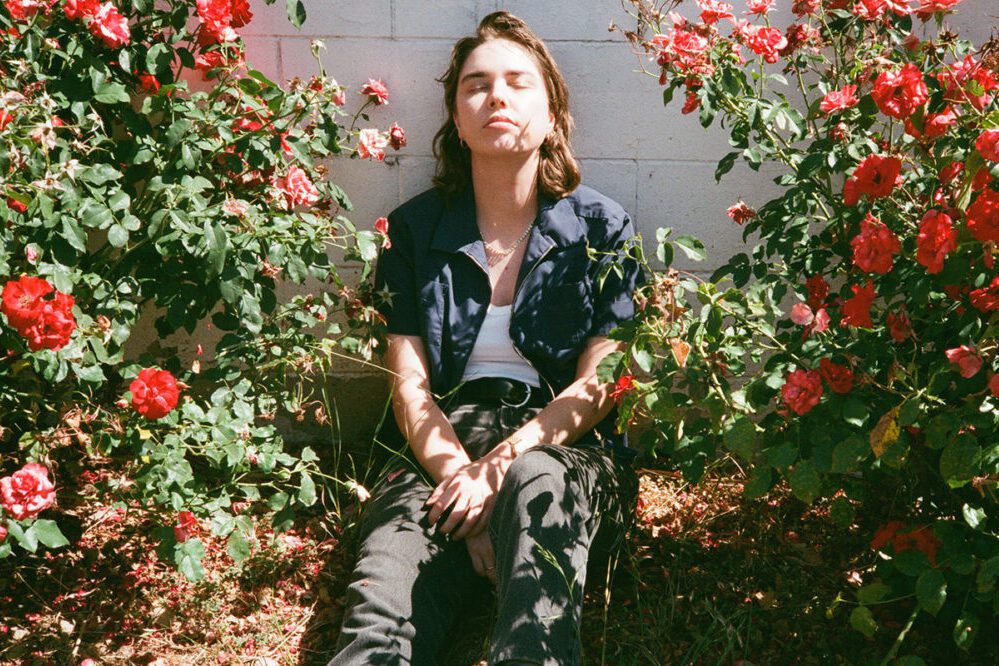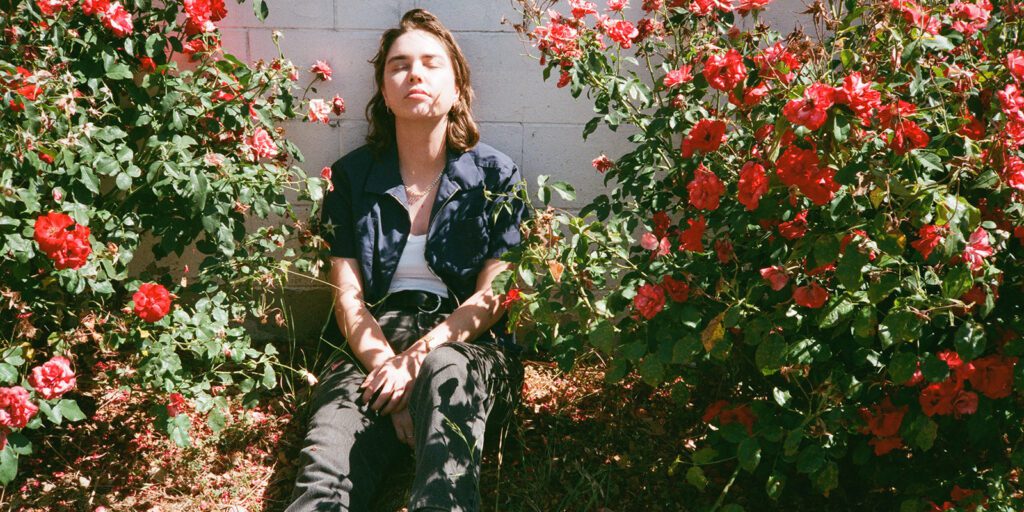

Cat Valley, a self-proclaimed “angry lady band” out of the small, bay-side Bellingham, Washington just North of Seattle, aren’t shy when it comes to calling out sexism—particularly within the music industry.
With that familiar Riot Grrl verve, relatability, and self-possession, the feminist foursome lambast crude Craigslisters, interruptive male coworkers, and even their own fathers on their new track “Manager,” a new single off their forthcoming EP Feral.
Along with being a clever, catchy, feminist banger, “Manager,” is a pertinent representation of the group’s folksier roots, and the louder, more electric sound they’ve landed on now.
“‘Manager’ is kind of an interesting song. It does start a little softer and you can hear some of our singer-songwriter-y roots in the beginning and then it gets really loud and surfy at the end,” says Abby Hegge, guitarist, vocalist and one of the founding members of Cat Valley.
Originally, Cat Valley was a duo, formed when Hegge met guitarist-vocalist Whitney Flinn in 2016 at her house show birthday party, organized by a mutual friend. “She asked my friend Tyson to book the house show for her and she and I were both playing singer-songwriter music at the time – she plays harp and I play acoustic guitar music,” remembers Hegge. “It seemed like a good genre match so Tyson got me on the bill. I heard her play and I cried, and she heard me play and she cried, and then we were like, can we jam?”
They named their band “Cat Valley” as an ironic nod to another all-male local band playing around at the time, “Dog Mountain.” “They kind of had some dudebro energy and we thought it would be funny if we named ourselves Cat Valley because it was the opposite of Dog Mountain. I did text them and asked them if it would hurt their feelings if we did that and they said to go for it,” Hegge says.
The origins of their name also complements the feminist themes that arise naturally in their collaborative songwriting. “We knew we wanted to write songs about feminism because we were both getting fed up with different things we were doing within our lives. And so, kind of through the songs being angry, that kind of elevated them to a louder place,” explains Hegge. “And then we realized we wanted them to be louder, so we started playing with more effects, started adding distortions, and then one of our friends offered to play drums for us.”
When that drummer friend had to move on, Hegge and Flinn were able to find drummer Melanie Sehman through their volunteerism with Bellingham Girls Rock Camp, a youth program that encourages social change through teaching music. Shortly thereafter, they recruited bassist Kristen Stanovich for the band, too. “Melanie was like, I’m a drummer, I like your music, let’s play,” says Hegge. “And then our friend Kristen joined the band, who is actually the partner of Tyson, the friend who initially introduced Whitney and I all those years ago.”
From there, the foursome began churning out fresh music, which they say is inspired by groups like La Luz and Sleater-Kinney, two all-women rock bands that also have ties to the Pacific Northwest and, like Cat Valley, draw from the patriarchy-bashing tradition of the Riot Grrl movement.
Their first demo, which features a cover image of Hegge’s orange cat, came out in 2016, followed by a self-entitled EP released in 2018. 2021’s Feral EP, while similar to past work, takes the themes they’ve always explored even further, and showcases how far they’ve come as a group.
Sure enough, Feral strikes a brilliant balance—it’s charmingly relatable, unabashed and bold. “Manager”—which begins somewhat sweetly before seething with rage over the intergenerational trauma of limiting gender roles by the end—is a perfect example of that.
“We were thinking about seeing our mothers feel more of the burden of raising children than our fathers and taking the kids to school and doing what their husbands say and those kinds of ideas,” says Hegge. “And we’re kind of yelling about some of our experiences that we’ve had, like Whitney getting talked over at a meeting, and a gross guy who answered one of my Craigslist ads by hitting on me.”
In fact, the title “Manager” comes from Hegge’s experience of watching her manager at Guitar Center—a woman—have to continually convince customers that she was actually the manager.
“[Customers] would come in, talking to her about something, and then she’d be like, oh yeah no this thing can’t happen, sorry. And they’d be like, can I talk to the manager? And she’s like, I am the manager. And they’re like can I talk to your manager. And she’s like, no I am the highest manager here. And they just wouldn’t believe her and would leave,” she recounts.
When asked if the band ever worries about the audience’s response to the “angry feminism” in their songs, Hegge balks. They are proud to be angry. It offers them a source of catharsis, particularly in a music industry that continually underestimates them because of their sex. “One time somebody wrote an album review of us and said it was all acoustic. We were just like, is this because we’re girls? What? There’s literally not one acoustic instrument on this album,” says Hegge. “Stuff like that.”
“I didn’t realize how angry I was – Whitney was a big catalyst for me realizing I was angry, honestly,” she continues. “She was already fired up and she’s a little older than me so she had experienced more and knew what sexism looked like and she’s very good at standing up for herself. I was like, oh wow, she’s really angry, she’s got a lot to be angry about. I bet I do too! And then I realized that I did and I was like, wow, I’ve really been playing it nice and pretending like nothing bothers me, but I don’t have to.”
Cat Valley’s fierce and original Feral EP drops November 12th. Additionally, the group will be playing a handful of shows around Seattle and Bellingham over the next few months. Their next show (with Kitty Junk) will be at Seattle’s High Dive on October 28th.
Follow Cat Valley on Facebook for ongoing updates.




